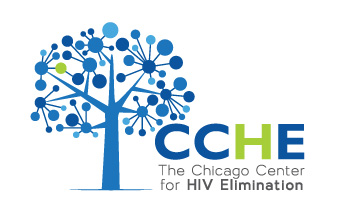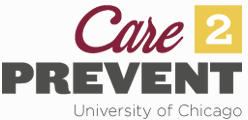Health community marks progress, work to be done on World AIDS Day

We commemorate World AIDS Day every year on December 1. Founded in 1988, World AIDS Day is an opportunity for people around the world to unite in the fight against HIV, to show support for people living with HIV, and to remember those we have lost from an AIDS-related illness.
Many great strides have been made in the fight against this disease. The Center for Disease Control reports that the estimated 1.1 million people living with HIV in the United States are now living longer—and with a better quality of life—than ever before. And, in Africa, HIV/AIDS is no longer the leading cause of death.
Yet, there is still work to be done.
With the University of Chicago situated in the South Side, one of the most vulnerable populations for exposure or transmission to HIV is right in the University’s backyard. In a report released by the City of Chicago Health Department, Chicago youth ages 20-29 represented over 40% of all new HIV infections. Individuals who identified as Black/African American comprised 50% of all new infections and were more likely to be diagnosed at a younger age.
Through rigorous research and the development of several innovative programs that are designed to address the transmission and prevention of this disease from a systems level, several organizations within the University of Chicago's Biological and Sciences Division are taking that work head on. The Chicago Center for HIV Elimination and the Care2Prevent (C2P) programs work collaboratively, yet each very uniquely work to prevent the transmission of HIV and increase access to care.
The Chicago Center for HIV Elimination
Led by John Schneider, the Chicago Center for HIV Elimination extends from the University of Chicago’s main campus to a nearby community engagement space called “the Village.” CCHE aims to eliminate new HIV transmission events domestically by 2041, a goal forecasted by its modeling team led by Aditya Khanna, PhD. This would mark the 60th year since the first cases of HIV/AIDS were identified in 1981.
CCHE moves beyond traditional approaches that focus on individual behavior. Rather, CCHE utilizes social, sexual and other risk networks to identify pathways of HIV transmission; how behavior and influence are transmitted through these networks; and how these networks can be leveraged for prevention. CCHE built upon early efforts engaging young Black MSM and transgender women by Schneider starting in 2008 and through community network strategies has engaged over 5000 young sexual minority men and transwomen with a unique structure that co-locates research and service projects to maximize implementation impact.
Between 2012 and today, CCHE has worked diligently to expand research and service collaborations. Including the addition of multiple, novel projects. Center faculty explore a variety of topics related to HIV risk and retention in care, such as incarceration, marijuana, and case management services. Work2Prevent, an early study aimed at addressing structural level factors associated with HIV risk and led by Dr. Darnell Motley, identified a need for additional visibility and enforcement of legal protections for LGBTQIA+ persons. Despite advances, participants reported that discrimination was pervasive. Work within the Center seeks to move academia and care providers beyond their current understanding, to fully value the way social and structural components interface with HIV risk.
CCHE also integrates its activities with faculty that lead a number of other complementary service projects including the Expanded HIV Testing and Linkage to Care Initiative (xTLC) and South Side Health Home (S2Hw). xTLC led by Moira McNulty which partners with 14 South and West Side community health care centers that provide routine HIV screening and linkage to care. Since the program’s inception in 2011, xTLC has completed 1,000,000 HIV tests and identified 1351 HIV-infected clients of which 80.3% were linked to care. S2H2, led by Drs. Julia Rosebush, Jessica Ridgway and John Schneider, integrates HIV care and prevention activities across the medical center, building on collaboration and innovation across the teams.
Care2Prevent
Care2Prevent (C2P), the University of Chicago’s Pediatric and Adolescent HIV Program led by Dr. Julia Rosebush, champions stability and upholds dignity through client-focused support, enabling self-directed progress within the continuum of HIV care. By prioritizing autonomy and the provision of innovative services, C2P aims to reshape and elevate the landscape of HIV care provision for individuals and families on Chicago’s South Side.
C2P places an emphasis on HIV treatment and prevention amongst children, adolescents, and young adults, and since 1990, has remained one of the largest providers of pediatric HIV care and prevention services on the South Side. Among those served in the past year, 11% were youth (ages 12-21), 51% were MSM or men or color, and 3% identified as transgender or gender non-conforming. Approximately 95% of people served through support services present with housing insecurity, 60% present with food insecurity, and 40% request employment assistance. The COVID-19 pandemic and its deep impact on the economy and communities of color has only exacerbated these issues; over the past few years we have seen a dramatic increase in needs around housing, employment, and food assistance.
To increase outreach, C2P staff utilize the Comer Children’s Mobile Medical Unit twice weekly to provide HIV/STI testing, safer sex kits, harm reduction supplies, and sexual health education in high HIV prevalence and incidence communities on Chicago’s South Side. In 2022, Care2Prevent tested over 300 individuals for HIV, the highest number since 2017. Since 2019, C2P has made a concerted effort to build relationships with community organizations throughout the city including Lawrence Hall, Covenant House of Illinois, Deborah’s Place, and Casa Esperanza among others to ensure that needs for wraparound services are met.
With funding from Getting to Zero Illinois, C2P has developed and implemented a flagship peer mentorship program. This program supports individuals with HIV who work alongside C2P staff to facilitate support groups and work with clients experiencing difficulty engaging in care. Clients who met with a peer expressed feeling more comfortable speaking about their concerns and were comforted by seeing someone in clinic with HIV who served as a role model for medication adherence and viral suppression, the goal of HIV treatment. One of C2P’s long-term goals is to help inform the development of peer mentorship programs in other HIV treatment and prevention spaces that focus on adolescent and young adult populations.


